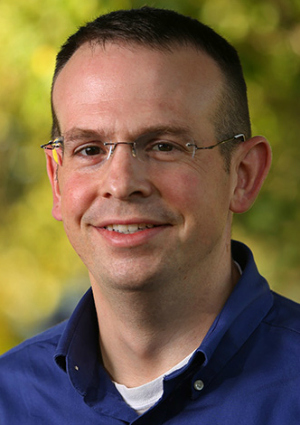You likely have heard the assertion that some Christians value theology more than people. Outward actions, they say, are more central to Christianity than internal beliefs.
The basic claim is that practical Christian ethics is the heart of Christianity, while theology is an attempt to define with certainty that which we cannot know. Ethics is reality while theology is speculation. Therefore, ethics is more important than theology.
|
Andrew J. Spencer |
As a Christian ethicist, I heartily affirm the importance of ethics. However, faithful Christian ethics presupposes a foundation of orthodox Christian doctrine. We cannot do ethics apart from theology.
In her essay “Creed or Chaos?” the late British writer Dorothy L. Sayers, an Anglican, argued, “It is worse than useless for Christians to talk about the importance of Christian morality unless they are prepared to take their stand upon the fundamentals of Christian theology.”
Christian morality without doctrinal foundations devolves to humanism, which eventually fails to motivate right action, Sayers wrote.
Unless you believe rightly, there is little hope you will live rightly. If someone does not believe humans have inherent value, they are unlikely to seek to relieve suffering or may justify doing harm while calling it good. Concern for the wellbeing of others is not self-generated; it arises from an anthropology that values people as made in the image of God. When anthropology fails, so does true compassion for humans.
For example, movements that advocate for voluntary euthanasia often are couched in terms of individual autonomy and alleviation of suffering. Assisting in the suicide of the old and the infirm is ethical if your anthropology presumes humans have a right to self-determination and suffering is purposeless. A deep theological sentiment, however flawed, lies behind a pro-euthanasia ethic.
Jesus is clear about belief being the basis for human action. Luke records Him explaining the relationship between the act of speech and the beliefs: “A good man produces good out of the good storeroom of his heart. An evil man produces evil out of the evil storeroom, for his mouth speaks from the overflow of the heart” (Luke 6:45, HCSB).
While those who pit ethics against theology are wrong to diminish the importance of doctrine, it is fair to acknowledge that theologically sound Christians sometimes fail to practice ethics demanded by their theology. Such was Carl F.H. Henry’s criticism of early evangelicalism.
The core theme of Henry’s brief volume The Uneasy Conscience of Modern Fundamentalism is that doctrinally orthodox evangelicals (i.e., those holding to the fundamentals of the faith) often repudiated social ethics simply because social activism was associated with modernist, theologically liberal Christians. This led faithful, theologically sound Christians to reject just action to mitigate harms, though those actions would have occurred in ways consistent with and were even demanded by scripturally faithful doctrine.
Henry’s indictment of his own theological tribe should come as no surprise, since Jesus’ words about the overflow of the heart are followed immediately by a sharp rebuke of those who have a proper faith but fail to act on it (Luke 6:46-49). Similarly, James 2:14-17 reminds Christians that faith that does not lead to ethical application is dead.
The problem in these situations is not that people were concerned about right doctrine, but that they failed to act upon it. Perhaps they understood the theological propositions but did not have a living faith to drive them to live the ethical implications of those doctrines. These critiques are reasonable.
The assertion “ethics matters more than doctrine” requires a presumption that theology is abstract while action is concrete. Nothing could be further from the truth. Ethics is abstract to the extent that even good actions are tainted by sinful motivations and have unknown consequences. Theology – the study of God and His works – is concrete inasmuch as its object is known and knowable. Doctrine is developed by faithful people in response to the revelation of God.
Again, Sayers is helpful as she describes the formulation of orthodox doctrine: “Dogmas are not a set of arbitrary regulations invented a priori by a committee of theologians enjoying a bout of all-in dialectical wrestling. Most of them were hammered out under pressure of urgent practical necessity to provide an answer to heresy.”
This is no less true about doctrines undergirding sexual ethics than about teachings on Christology. The church has often had to codify previously assumed or unconsidered doctrines in the face of innovative challenges threatening to undermine the doctrinal core of Christianity. This does not represent a failure to love people who hold faulty doctrine – it is a sign of faithfulness to the one who calls Christians to love people. The apostle Paul’s admonishment is to speak truth in love, not to reject truth in the name of love (cf. Ephesians 4:15).
Christians would do well to live out their faith. We would also do well to ponder Jude’s words to the church, which include a call to contend for the faith – the sound doctrine – that was given to the saints because those who rejected those teachings led others to practice bad ethics (Jude 3-4). Christianity is not merely about right doctrine, but orthodoxy cannot be rejected without a grave cost to ethics.
(EDITOR’S NOTE – Andrew J. Spencer is associate vice president for institutional effectiveness at Oklahoma Baptist University. He holds a Ph.D. in theological studies with a concentration in Christian ethics from Southeastern Baptist Theological Seminary. He regularly blogs at EthicsAndCulture.com.)



